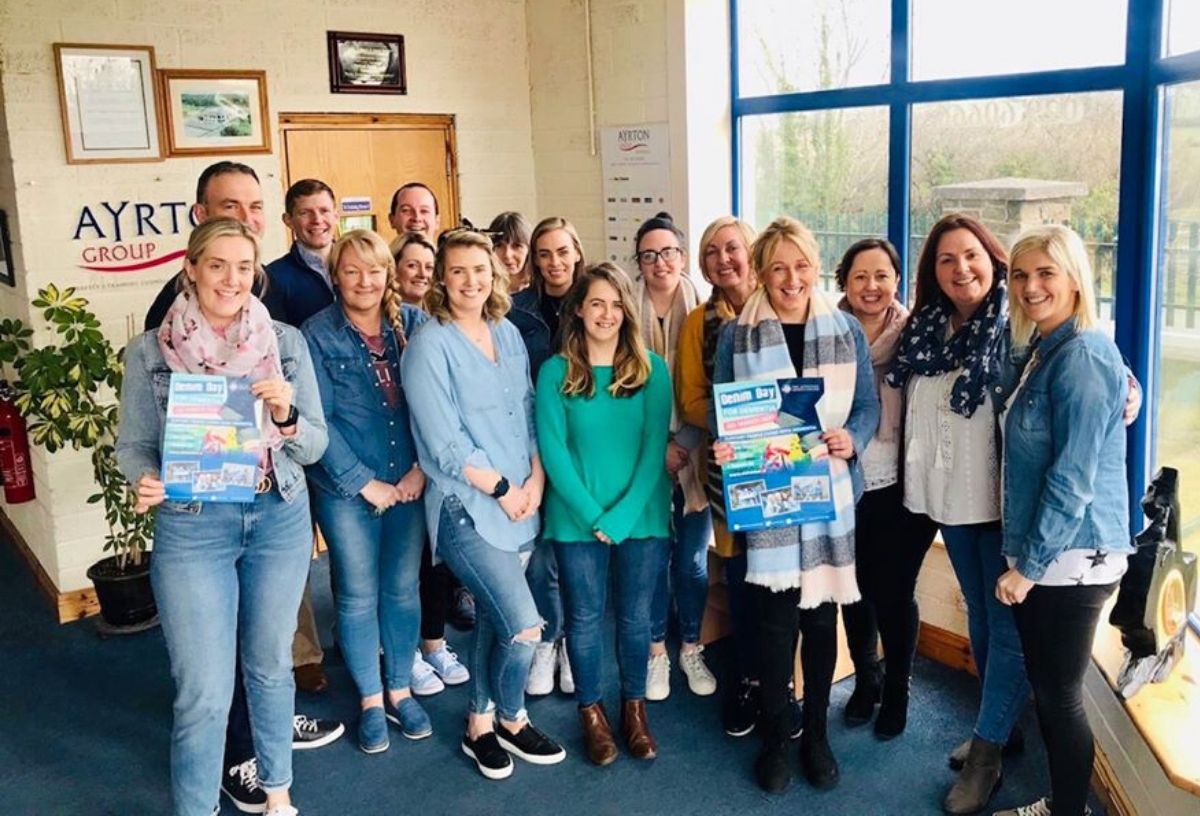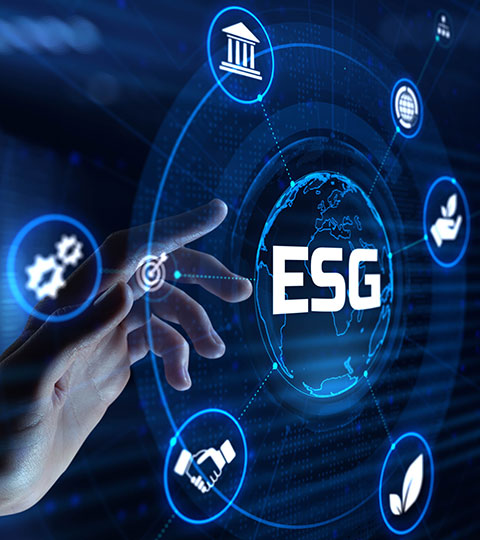Environmental, Social & Governance (ESG)
Environmental, Social, and Governance (ESG) is quickly emerging as the leading business strategy to evaluate the overall health of a business’s operating model and the company’s long-term resiliency.
Environmental, Social, and Governance (ESG) is quickly emerging as the leading business strategy to evaluate the overall health of a business’s operating model and the company’s long-term resiliency.
Stakeholders are increasingly investigating and in some cases, demanding, thoughtful, forward-looking policies and programs that incorporate environmental and social impacts and how they are governed.

At Ayrton Group our consultants have the
strategic thinking and technical expertise to provide client-specific advisory that helps clients navigate, understand, and proactively manage their ESG risks and opportunities to embed a programmatic approach that lasts.
Ayrton Group maintains a global perspective on ESG issues through not only our work with multinational clients, but also through our sister organizations in the US, Europe, Asia, and Latin America as a member of Inogen Alliance.

At Ayrton Group, whilst we support clients across a whole range of ESG topics the key areas where we assist clients are in the following areas:
Your organisation’s Carbon Footprint arises from greenhouse gas emissions (GHG) that are released when fuel is burned, for instance, in vehicles and power stations burning coal. These are also generated due to the running activities of company. Emissions from activities for which that company is responsible for, include the combustion of fuels in heavy machinery, which are called called Scope 1 emissions, along with, the emissions from the purchase of electricity, heat, steam or cooling by the company for its own use from power companies, which are called Scope 2 emissions. The third type of emissions are the Scope 3 emissions, which are termed “indirect” emissions, so called – since the company has less control over these.
There are 13 different classes in Scope 3. Examples are employee commuting, waste management, products bought to be used by the company, and downstream transportation (delivering of products, for instance). Ayrton will itemize all of the relevant sources of emissions, and by collecting the relevant data from you, will present you with the Carbon Footprint Report.
A Decarbonisation Action Plan follows on from a decarbonisation strategy, which is the ways a company aims to reduce greenhouse gas emissions, by undertaking cross-organisational emissions reductions planning. An example of this could be replacement of a fossil fuel burning gas boiler with an electrical heat pump.
More in-depth than a Carbon Footprint Report, the Decarbonization Action Plan goes more in-depth into Carbon Emissions reductions planning, including target-setting for reducing GHG over time.
This action plan is an in-depth appraisal of the originating source of the GHG, such as from building energy use, transportation, waste etc.
Sets out a target for emissions reductions by calculating how much carbon is reduced by implementation of strategies/actions
For an ESG programme at an organisation to be successful and reach the goals that it sets out to disclose, such as in an ESG report, the set of targets for improvements, to answer the needs of clients, investors, or other stakeholders, then a Materiality Assessment is its first step. The purpose of the Materiality Assessment is for the prioritization of ESG topics which are not only “materially relevant” to your organisation, but also what are also classed as “relevant” disclosures from global perspectives on sustainability, such as from the UN Sustainable Development goals, and similar standards and frameworks.
Since an organisation in one sector, for example, Construction, will have very different contexts from another sector, such as Food & Agriculture, therefore, each organisation must be assessed individually, using internationally recognised standards, and what is materially relevant to each sector may be quite different. Ayrton Group recognizes the Global Reporting Initiative as valuable guidance to follow when undertaking a materiality assessment.
In a Sustainability Report, companies can show transparency to clients and customers that the way the company is run, is not in conflict with sustainability goals and principles, and this both shows how the company is doing as a business to address sustainability, while performing a valuable opportunity for the company to showcase its performance in sustainability along with suitable business areas.
Ayrton Group has based its solutions for clients for Sustainability Reporting, upon the leading set of standards for ESG reporting the Global Reporting Initiative, while it has screened and developed a pre-compiled full list of topical areas, which are aligned with the GRI, and have been aligned with globally acceptable sustainability goals such as the UN Sustainable Development Goals. This ensures that the decisions taken on which topics to report upon, are currently recognised as the most important sustainability topics.
An ESG Stakeholder Engagement, is a form of assessment where the company asks for the opinions of stakeholders on ESG topics. The Global Reporting Initiative (GRI) recommends for conducting a Materiality Assessment that stakeholder opinion is included, so that the opinions of stakeholders on which material topics are of greater concern, is fed back into the process, and thus this informs the choosing/prioritizing of material topics
For organisations looking to develop out its processes to internalise ESG and to start a cycle of reporting on ESG, i.e. an ESG Programme, this workshop’s aims are to provide all of the relevant foundational knowledge on ESG, as well as the exact steps taken to begin to measure ESG performance and report on an annual basis.
The workshop aims, are at establishing an up to date, foundational knowledge of what is ESG in Business, in the specifically Irish context. Sustainability Strategy asks – what are the goals you are setting in ESG and what are the steps you are going to take to achieve those? A sustainability strategy asks of an organisation what it is doing to reach the ESG goals that it has set both internally, and to external standards. The most comprehensive strategies currently include undertaking Materiality Assessment and Stakeholder Assessment, and these are described.
As Green House Gas (GHG) emissions is a leading topic for many organisations, a presentation will be delivered upon Carbon Footprint Assessment to understand this highly relevant subject. As part of understanding your strategy and the priority topics to focus on in a Sustainability Strategy, the next presentation is upon Materiality Assessment which guides the choosing of priority topics. The next presentation is upon Stakeholder Assessment, the aim of which is to understand the concerns of key stakeholders, such as employees and business partners. The opinions of stakeholders are meant to inform the material topics. The last presentation is on Sustainability Report writing and what an example report contains.

In order to achieve a cleaner, safer, more sustainable world, all companies must realize the importance and value of managing ESG-related business challenges in a way that fits their pace and unique objectives.
From understanding what is most material to your business and how to establish baselines and goals, to developing roadmaps, tracking metrics and reporting on progress, Ayrton Group can help you establish a strong ESG program that can evolve and mature with your business, respond to changing investor demands, and be agile to societal shifts.
Our approach to developing and implementing an ESG program is robust and systematic yet flexible to fit the scope and scale of your business operations.

Looking for information about safety consultancy,
safety training or staffing? Contact our expert team
today to find out how we can tailor a solution for
your specific project needs.